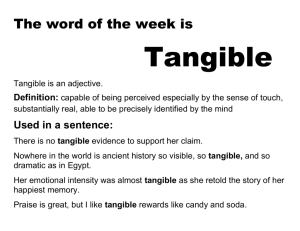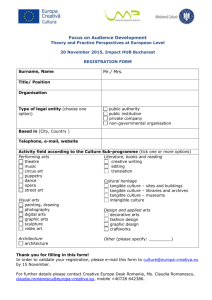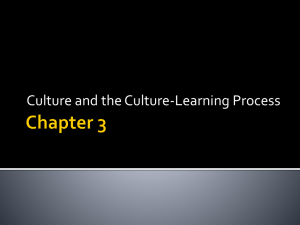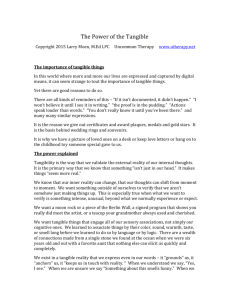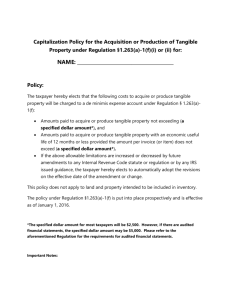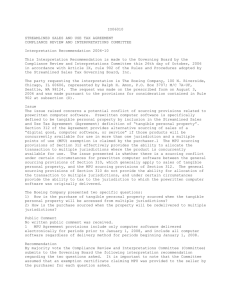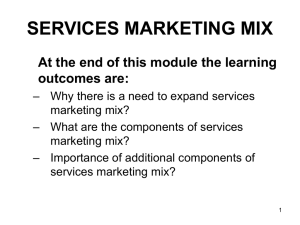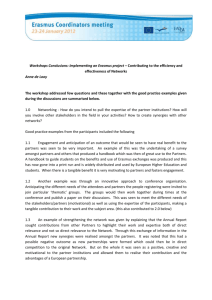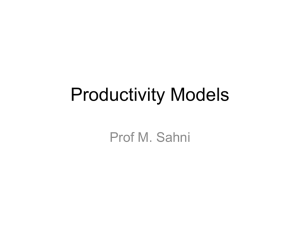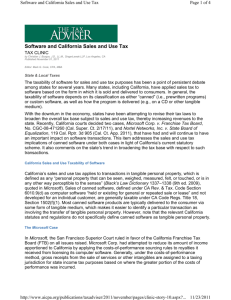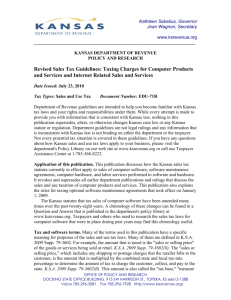Revised-Compromise-Letter
advertisement
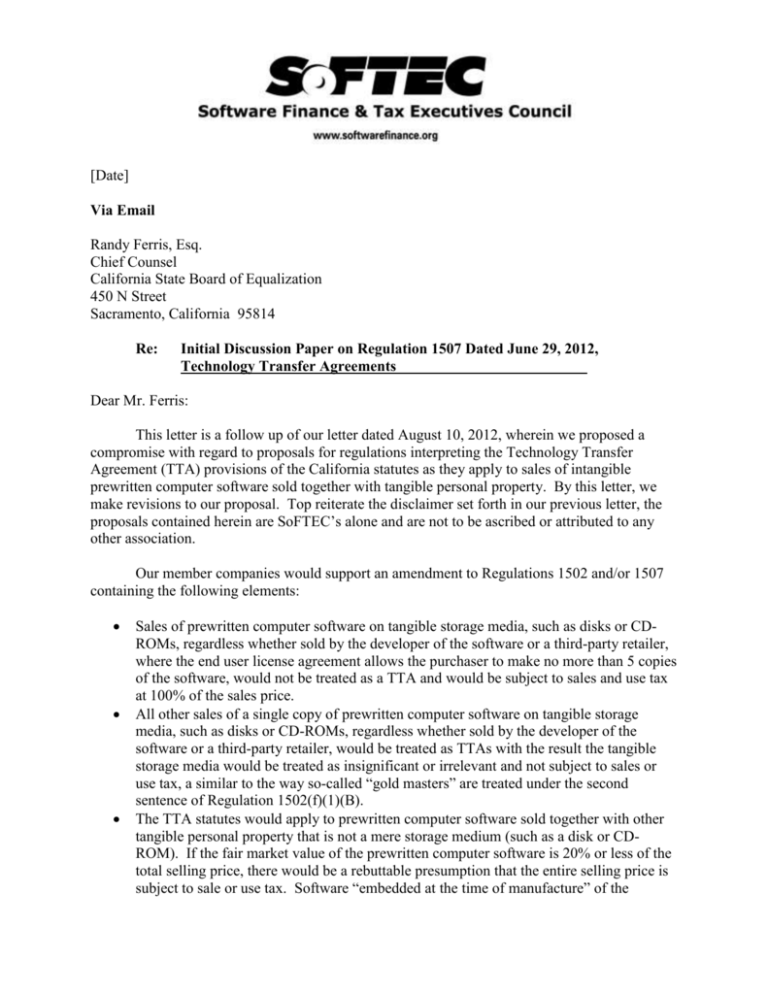
[Date] Via Email Randy Ferris, Esq. Chief Counsel California State Board of Equalization 450 N Street Sacramento, California 95814 Re: Initial Discussion Paper on Regulation 1507 Dated June 29, 2012, Technology Transfer Agreements Dear Mr. Ferris: This letter is a follow up of our letter dated August 10, 2012, wherein we proposed a compromise with regard to proposals for regulations interpreting the Technology Transfer Agreement (TTA) provisions of the California statutes as they apply to sales of intangible prewritten computer software sold together with tangible personal property. By this letter, we make revisions to our proposal. Top reiterate the disclaimer set forth in our previous letter, the proposals contained herein are SoFTEC’s alone and are not to be ascribed or attributed to any other association. Our member companies would support an amendment to Regulations 1502 and/or 1507 containing the following elements: Sales of prewritten computer software on tangible storage media, such as disks or CDROMs, regardless whether sold by the developer of the software or a third-party retailer, where the end user license agreement allows the purchaser to make no more than 5 copies of the software, would not be treated as a TTA and would be subject to sales and use tax at 100% of the sales price. All other sales of a single copy of prewritten computer software on tangible storage media, such as disks or CD-ROMs, regardless whether sold by the developer of the software or a third-party retailer, would be treated as TTAs with the result the tangible storage media would be treated as insignificant or irrelevant and not subject to sales or use tax, a similar to the way so-called “gold masters” are treated under the second sentence of Regulation 1502(f)(1)(B). The TTA statutes would apply to prewritten computer software sold together with other tangible personal property that is not a mere storage medium (such as a disk or CDROM). If the fair market value of the prewritten computer software is 20% or less of the total selling price, there would be a rebuttable presumption that the entire selling price is subject to sale or use tax. Software “embedded at the time of manufacture” of the tangible personal property, even if separately stated on the sales invoice, would not be a TTA. Additionally, if the fair market value of the software is more than 20% of the total selling price, there would be a rebuttable presumption that 20% of the selling price would be for the software and not subject to tax. Taxpayers would be able to rebut the presumption with evidence that a different amount is attributable to the non-taxable software component of the sales price. The state would honor claims for refunds of sales tax from sellers and use tax from purchasers consistent with the above formulae. We will not restate the remainder of the discussion from our previous letter but incorporate it herein by reference. The premise of our approach is to divide sales of software sold on disk into two categories that roughly distinguishes between sales to consumers, which would not be treated as TTAs, and sales to businesses, which would be treated as TTAs. Generally, consumer software end user license agreements (EULAs) allow the purchaser to load the software onto a single computer. Some consumer EULAs allow the purchaser to make a handful of copes so the software can be loaded onto the multiple computers the purchaser might own, such as a desk-top, a laptop or a handheld computer. Generally, business-use software allows the making of sufficient copies for use in the purchaser’s business. We believe EULAs allowing the making of more than an insignificant number of copies are similar to the “gold master” provisions of Regulation 1502(F)(1)(B). Whether the copies are to be resold (as in Regulation 1502) or used by the purchaser, should not make any difference to the taxability. Indeed, we can find no provision in the California statutes that hinges the taxability of sales of prewritten computer software on such a distinction. We recognize our proposal will result in some sales of software to businesses where the license only allows the making of those copies necessary to the use of the software, such as the switch specific software at issue in Nortel, as other than TTAs. With regard to our proposed treatment of so-called ‘embedded software,” we have added a suggested a safe harbor for cases where the value of the software compared to the other tangible personal property is substantial. Sales tax issues frequently lead to tension between sellers and buyers because the sale tax issue could depend on the disclosure by the seller of confidential business information. The safe harbor would reduce this tension. Taxpayers should be allowed to rebut the presumption with information showing the value of the software is greater than 20%. Allowing taxpayers to treat a fixed portion of the sales price as attributable to non-taxable intangible property would reduce disputes between sellers and purchasers and between taxpayers and tax administrators. Conclusion: We ask that you give our amended proposal for compromise serious consideration. Please feel free to contact the undersigned at (202) 486-3725 or mnebergall@softwarefinance.org with any questions. Respectfully submitted, Mark E. Nebergall President Software Finance & Tax Executives Council
